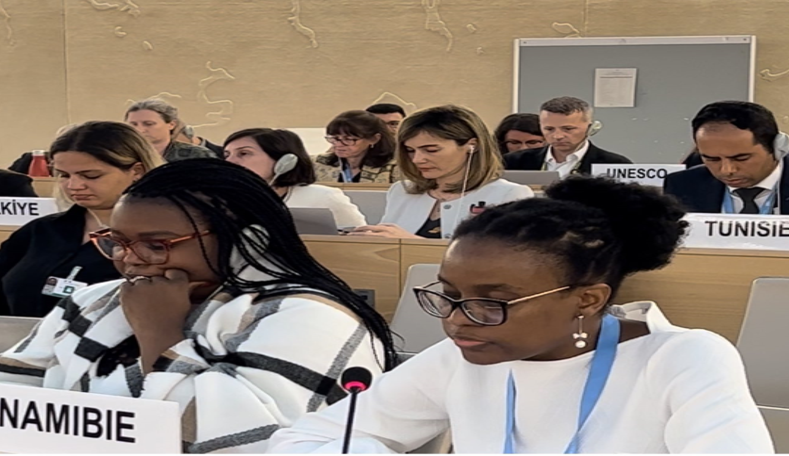
Namibia highlighted her progress towards the goal of gender equality esp. in education
HRC on the Enhanced Interactive dialogue with the WG Report on Discrimination against Women and Girls, Namibia highlighted her progress towards the goal of gender equality esp. in education by implementing policies and programs aimed at increasing access to education for girls.
Communique
Then Working Group on discrimination against women and girls addressed the Human Rights Council, advocating for a feminist human rights-based economy to combat the disproportionate representation of women and girls living in poverty worldwide.
Dorothy Estrada-Tanck, Chair of the Working Group, highlighted the global disparity in poverty, where women and girls were disproportionately affected. The group’s report revealed that systemic failures perpetuated poverty and socioeconomic inequality, leading to exclusion and discrimination. They proposed a feminist human rights-based economy grounded in principles of substantive equality, solidarity, and socioeconomic and environmental justice. The report included recommendations to States, international economic institutions, and corporations to establish a new human rights-based feminist eco-social consensus.
Ms. Estrada-Tanck also discussed the Working Group’s visits to Kyrgyzstan and Maldives, with representatives from both countries speaking during the session.
In the ensuing dialogue, numerous speakers commended the Working Group’s report for its inclusive and consultative process, strong feminist and intersectional lens, and crucial recommendations. Many expressed concern over the disproportionate representation of women and girls among the world’s poor, emphasizing the need for structural changes to eradicate poverty. They stressed the importance of addressing systemic barriers to human rights enjoyment and increasing women’s representation in political and social spheres.
A wide range of countries and organizations participated in the dialogue, including Mexico, the European Union, United Nations Women, and numerous others. Additionally, representatives from national human rights institutes and non-governmental organizations, such as the Centre for Reproductive Rights and the Asian-Pacific Resource and Research Centre for Women, also contributed to the discussion.

